#techade
Text
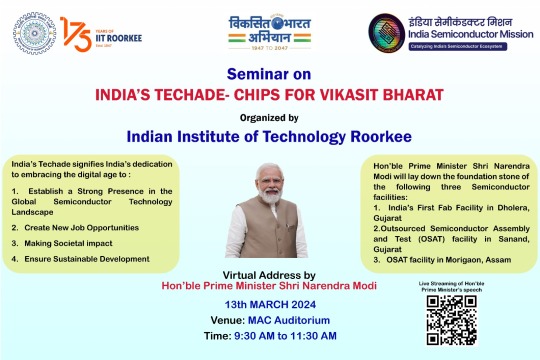
IIT Roorkee celebrates the inauguration of India’s First Semiconductor Fabrication Facilities by Honble Prime Minister Narendra Modi. We are hosting a panel discussion and seminar on "India's Techade - Chips for Viksit Bharat". Don't miss out on this insightful event!
0 notes
Text
#Adding pace to India’s Techade ! Last 7 years have been nothing less than a revolution in governance of India.The transformation from a tech#NewIndia#DigitalIndia#IndiasTechade#India#modigovt @narendramodi @BJP4India @PMOIndia
0 notes
Text
PM Narendra Modi participates in ‘India’s Techade: Chips for Viksit Bharat'
http://dlvr.it/T5JTQq @VinodChavdaBJP
0 notes
Text
Mamata Takes the Lead Against CAA in Siliguri: What’s Next for JJP and More Political Developments
In the ever-dynamic landscape of Indian politics, today brings forth a mix of rallies, legal battles, and significant moves by key players. Here’s a rundown of what’s making waves:
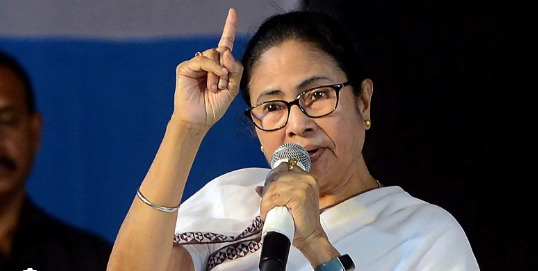
Mamata Banerjee’s Anti-CAA Roadshow in Siliguri:
West Bengal Chief Minister Mamata Banerjee is set to lead a roadshow in Siliguri, taking a bold stand against the Citizenship Amendment Act (CAA) and the proposed National Register of Citizens. This follows her recent declaration of the CAA as “unconstitutional and discriminatory.” Her vocal opposition has sparked debates and garnered attention, particularly in light of the upcoming elections.
Challenges in Assam and the Matua Factor:
In Assam, protests against the CAA continue, fueled by recent government announcements. Meanwhile, Mamata Banerjee’s remarks in Habra, North 24 Parganas, carry significance, especially considering the Matua population’s stance on the issue. The Matuas, a crucial electoral group, are divided over the CAA, posing a unique challenge for political parties seeking their support.
JJP’s Dilemma and the Rise of Nayab Singh Saini:
The political landscape in Haryana sees developments as Nayab Singh Saini assumes the role of Chief Minister. With the BJP-JJP alliance facing strains over seat-sharing, Dushyant Chautala’s next moves remain under scrutiny, especially amid internal dissent within the JJP ranks.
PM Modi’s Engagements:
On a national scale, Prime Minister Narendra Modi is set to launch the PM-SURAJ website, extending support to entrepreneurs from disadvantaged communities. Additionally, he will address the ‘India’s Techade’ event, emphasizing the importance of technology in India’s development trajectory.
Legal Battles and AAP’s Stand:
In the legal realm, the Supreme Court’s hearing of Manish Sisodia’s curative petition adds another layer to the political landscape. Sisodia’s case, stemming from the Delhi excise policy, underscores the ongoing legal battles intertwining with political narratives.
As the day unfolds, these developments shape the political discourse, highlighting the complexities and intricacies of Indian politics. Stay tuned for further updates on these evolving stories.
0 notes
Text
Welcome to nasscom Technology and Leadership Forum (NTLF) – the largest tech and leadership gathering in Asia. The 32nd edition, to be held in Mumbai in 2024, will build on dialogues under the overarching theme of Shaping the Techade.
0 notes
Photo

The government will establish three self-regulatory organizations (SROs) to license games that correspond to the country’s operating requirements, according to Rajeev Chandrasekhar, Minister of State for Electronics and Information Technology.
The Indian government enacted regulations to regulate the online pay-to-earn industry, prohibiting pay-to-win games involving actual money. Rajeev Chandrasekhar, Minister of State for Electronics and Information Technology, said that the government would establish three self-regulatory organizations (SROs) to license games that adhere to country legislation.
According to Chandrasekhar, suitable internet games do not feature pay-to-win or anything that causes user injury in youngsters. In India, SROs will regulate internet gaming rather than the government.
As per the laws, the SROs must include an educator, an expert in psychology or mental health, and someone who has worked as an officer or member of an organization dedicated to preserving children’s rights. “This is an enabling framework to allow serious and significant expansion in the online gaming space in India, which is a very big opportunity,” Chandrasekhar explained.
The IT Rules of 2021 were amended to include the online gaming rules. The online gaming self-regulatory body can deem an online pay-to-play game as permissible, as long as “the online pay-to-play game does not involve pay-to-earn on any outcome.”
Any SRO that enables online games that entail pay-to-win on the outcome of cricket matches, such as the Indian Premier League, will break the guidelines and be denotified, according to Chandrasekhar. In addition, SROs must establish a framework on their website to safeguard users against pay-to-earn addiction, financial loss, and fraud.
“This is the best possible framework and the way ahead for online gaming firms in India. With the newly established clarity, the sector will regain positive investor interest furthering its growth and parallelly driving new career and economic opportunities,” Deepak Gullapalli, Founder & CEO, Head Digital Works (A23) said.
Several Indian states have banned online fantasy game platforms, claiming suicide and addiction issues among their populations. Chandrasekhar claimed that any state legitimately attempting to combat pay-to-earn or pay-to-earn would find the rules non-ultra vires to their efforts.
“The new guidelines will promote innovation, boost Create in India and Brand India, and give the much-needed impetus to India’s Techade. It will ensure the responsible and transparent growth of the industry, safeguarding consumer interests while curbing the proliferation of illegal offshore pay-to-earn sites,” Dr Subi Chaturvedi, Global SVP, Chief Corporate Affairs and Public Policy officer of InMobi Group said.
More details visit us
https://aigf.in/game/new-regulations-to-help-online-gaming-industry?utm_source=referral&utm_medium=image-submission&utm_campaign=new-regulations-to-help-online-gaming-industry
0 notes
Text
India's tech sector revenue to cross $245 billion in FY23, shows data#Indias #tech #sector #revenue #cross #billion #FY23 #shows #data
The Indian technology sector has been resilient even in an uncertain global macro environment.
The recently released Nasscom Strategic Review 2023 says the industry will end 2022-23 (FY23) with revenues of over $245 billion, an increase of $19 billion over FY22.
The year is emerging as India’s techade, with robust opportunities in creating public digital infrastructure, and greater ease of doing…

View On WordPress
0 notes
Text
NASSCOM launches NariShaktiCertified to empower women through FutureSkills Prime

FutureSkills Prime is Boosting NARI SHAKTI To Empower The Nation Techade. This is an initiative encouraging all Indian women, whether a housewife, a student, a professional, or someone who wants to rejoin the workforce to enhance their careers.
0 notes
Text
India will be among pack of nations that shape the future of technology: MoS IT Rajeev Chandrasekhar | India News
NEW DELHI: India will be among the pack of nations that will shape the future of technology, said Union minister of state for information technology Rajeev Chandrasekhar during his address at the Economic Times Global Business Summit on Saturday.Speaking on the debate topic, India’s Techade – A decade of opportunities, Chandrasekhar said that PM Narendra Modi had set out a three-fold vision for…

View On WordPress
0 notes
Text
Upcoming Decade Is Going To Be "Techade": Nirmala Sitharaman
Upcoming Decade Is Going To Be “Techade”: Nirmala Sitharaman
Nirmala Sitharaman was speaking at YourStory’s 13th Edition Techsparks.
Bengaluru:
Union Finance Minister Nirmala Sitharaman on Saturday said that the coming decade will be a ‘Techade’, and technology is going to drive us.
Delivering the keynote address at YourStory’s 13th Edition ‘ Techsparks’ here, she also stressed on frugality and scalability of innovation.
“…. technology driven innovators…
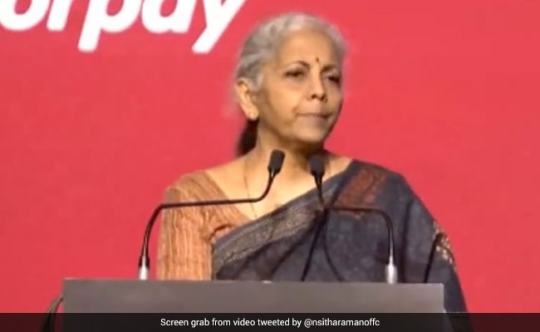
View On WordPress
0 notes
Text
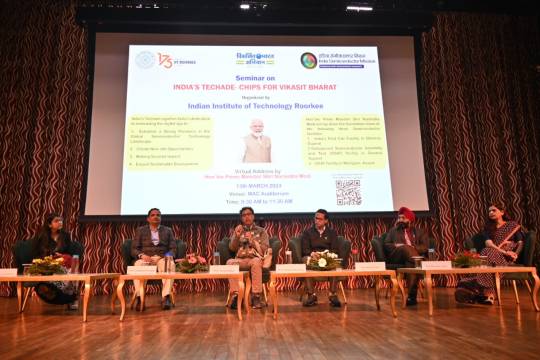




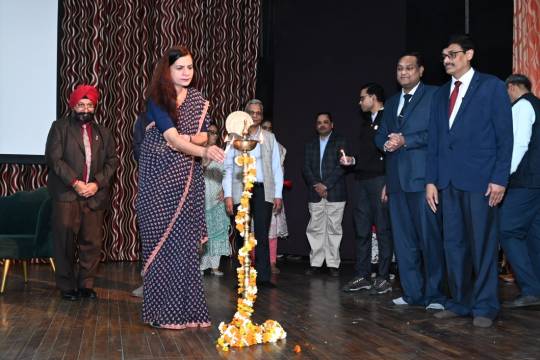
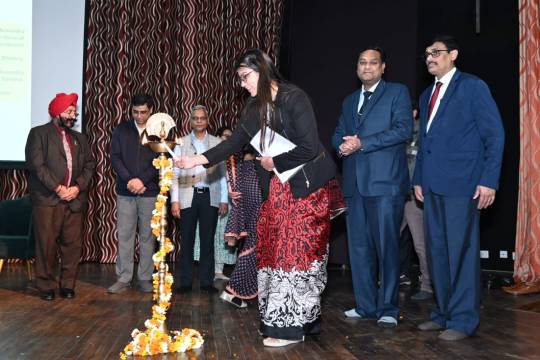
A glimpse from the panel discussion on 'India's Techade - Chips for Viksit Bharat' at IIT Roorkee. Enlightening discussions on the future of semiconductor technology in India.
0 notes
Text
Draft Digital India Act Framework Expected by Early 2023, Significant Work Done, MoS IT Says
Draft Digital India Act Framework Expected by Early 2023, Significant Work Done, MoS IT Says
A significant amount of work has been done on proposed Digital India Act, and the draft legislative framework to support ‘India’s techade’ is expected by early 2023, Minister of State for IT Rajeev Chandrasekhar has said. The comments assume significance as India is moving swiftly towards a strong framework to catalyse its digital ambitions and govern online ecosystem, with openness, user safety…
View On WordPress
0 notes
Link
[ad_1] A significant amount of work has been done on proposed Digital India Act, and the draft legislative framework to support 'India's techade' is expected by early 2023, Minister of State for IT Rajeev Chandrasekhar has said. The comments assume significance as India is moving swiftly towards a strong framework to catalyse its digital ambitions and govern online ecosystem, with openness, user safety and trust as the guiding principles.At the same time, the government has asserted that extensive consultation will go into framing key legislations which are going to be essential building blocks for 'new India' and its digital architecture.Asked about the status of Digital India Act, which will replace the IT Act, Chandrasekhar said: "A significant amount of work has been done on it, and we expect that in early 2023, under PM's leadership, a legislative framework for India's techade will be placed in front of the country." The minister asserted that the government intends to have detailed consultation on key legislations."...all of these legislations for 'new India', have to be modern, extensively consulted with consumers, industry, startups, lawyers, judges, citizens... all of them have to find that their voice has been incorporated into all of these legislations, and that is precisely what we will do," Chandrasekhar told PTI in an interview.He made it clear: "We are not operating on artificial timelines." The upcoming legislation, Digital India Act, will replace the IT Act 2000, which is more than two decades old, he said but did not comment on specific provisions.Chandrasekhar further said laws, rules, and jurisprudence around Internet will continue to evolve. It is pertinent to mention that the government recently tweaked IT rules under which it will set up appellate panels to resolve grievances that users may have against decisions of social media platforms like Twitter and Facebook on hosting contentious content.Notably, the new amendments to IT rules now impose a legal obligation on social media companies to take all out efforts to prevent barred content and misinformation, and platforms such as Twitter and Facebook operating in India will have to abide by local laws and constitutional rights of Indian users.The hardening of stance against the big tech companies comes at a time when discontent has been brewing over alleged arbitrary acts of social media platforms on flagged content.Given that 800 million Indians are online, the Centre had said it will bring a modern framework of laws and rules that will act as catalysts for innovation and protect rights of `Digital Nagriks'.While the government withdrew the draft Personal Data Protection (PDP) Bill in August, its replacement - a fresh legislation offering a comprehensive framework of global standard laws including digital privacy laws for contemporary and future challenges - is currently in the works. Affiliate links may be automatically generated - see our ethics statement for details. [ad_2]
0 notes
Text
Significant work done, draft Digital India Act framework by early 2023: MoS IT
Significant work done, draft Digital India Act framework by early 2023: MoS IT
Rajeev Chandrasekhar asserted that the government intends to have detailed consultation on key legislations
Rajeev Chandrasekhar asserted that the government intends to have detailed consultation on key legislations
A significant amount of work has been done on proposed Digital India Act, and the draft legislative framework to support ‘India’s techade’ is expected by early 2023, Minister of…
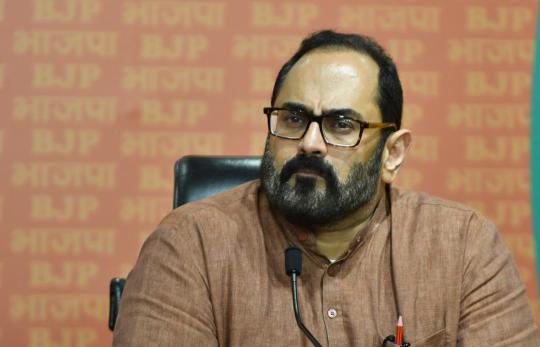
View On WordPress
0 notes
Text
From 1G to 5G, India is moving toward a new-age telecom business
“The launch of 5G will have a lasting impact. It'll be the future of the internet. 5G will bring a change to each person's life be it small businessmen, farmers, doctors, or students. It will also drastically affect our startup ecosystem” – Rajeev Chandrasekhar, MoS Electronics & IT.
India is the second-largest wireless market in the world, dominated by Reliance Industries Ltd. (Jio), Vodafone Idea, and Bharti Airtel Ltd. Reportedly, out of these, Airtel has launched its 5G services in eight cities and Jio would roll it out soon in four metro cities.
SkyTrust believes that this fifth generation (5G) is a much-awaited and long-term evolution (LTE) in the telecom sector. Its fast internet speed, large network capacity, 1ms latency rate, and increased reliability will result in a uniform user experience unleashing new economic opportunities and societal benefits.
Prime Minister, Narendra Modi launched 5G at the 6th India Mobile Congress at Pragati Maidan, Delhi on October 2, 2022. Its cumulative economic impact is estimated to reach USD 450 billion by 2035.
The initial 5G services map will be rolled out in 13 Indian cities namely, Delhi, Hyderabad, Bengaluru, Pune, Ahmedabad, Lucknow, Chandigarh, Kolkata, Jamnagar, Gurugram, Chennai, Gandhinagar, and Mumbai. However, only some restricted areas will have the access to the 5G network in these cities.
“India's techade is here! With 5G, semiconductor manufacturing and Optical Fibre Cable (OFCs) in villages, we are bringing a revolution through Digital India to the grassroots level," said The Prime Minister in his Independence Day speech at the Red Fort.
Supporting the Prime Minister’s concern, SkyTrust also believes that industrial growth comes from the grassroots, and the MSMEs, street vendors, and organized sector workers need to be strengthened to be future-ready.
5G services work in three categories of band spectrums – low-band, mid-band, and high-band. Low-band frequency ranges from 600 MHz to 900 MHz, which is similar to the 4G range. The mid-band uses between 1.7 GHz to 4.7 GHz frequency and the high-band ranges from 24 GHz to 47 GHz. As per a report, Indian telecom services are likely to use the mid and high-band 5G spectrum.
Telecom minister Ashwini Vaishnaw also focused on the availability of 5G services in more than 200 cities in the coming six months. He said, “Attempts being made to make 5G services available in 80-90% of the country in next 2 years.”
This digital India movement is highly focused on strengthening the three major sectors of health care facilities, and education. The results can be time taking but are worth adopting.
About SkyTrust
SkyTrust is founded in March 2021 to help businesses grow their online presence. For further information about the company’s services follow them on
Facebook - https://www.facebook.com/skytrustitsolution
Instagram - https://www.instagram.com/skytrustitsolutions/
Twitter - https://twitter.com/SkytrustIT
LinkedIn - https://www.linkedin.com/company/skytrust-it-solutions/
Pinterest - https://in.pinterest.com/skytrustitsolutions/
YouTube - https://www.youtube.com/channel/UC8buygdv-p_cJxNRmXGTBHA
Media Contact
Company Name –
SkyTrust IT Solutions Pvt. Ltd.
Contact Person –
Anshul Bhardwaj and Prabhjot Rajput
Email -
Country –
India
Website -
https://skytrustit.com/
0 notes
Text
New Regulations To Help Online Gaming Industry
The government will establish three self-regulatory organizations (SROs) to license games that correspond to the country’s operating requirements, according to Rajeev Chandrasekhar, Minister of State for Electronics and Information Technology.
The Indian government enacted regulations to regulate the online pay-to-earn industry, prohibiting pay-to-win games involving actual money. Rajeev Chandrasekhar, Minister of State for Electronics and Information Technology, said that the government would establish three self-regulatory organizations (SROs) to license games that adhere to country legislation.
According to Chandrasekhar, suitable internet games do not feature pay-to-win or anything that causes user injury in youngsters. In India, SROs will regulate internet gaming rather than the government.
As per the laws, the SROs must include an educator, an expert in psychology or mental health, and someone who has worked as an officer or member of an organization dedicated to preserving children’s rights. “This is an enabling framework to allow serious and significant expansion in the online gaming space in India, which is a very big opportunity,” Chandrasekhar explained.
The IT Rules of 2021 were amended to include the online gaming rules. The online gaming self-regulatory body can deem an online pay-to-play game as permissible, as long as “the online pay-to-play game does not involve pay-to-earn on any outcome.”
Any SRO that enables online games that entail pay-to-win on the outcome of cricket matches, such as the Indian Premier League, will break the guidelines and be denotified, according to Chandrasekhar. In addition, SROs must establish a framework on their website to safeguard users against pay-to-earn addiction, financial loss, and fraud.
“This is the best possible framework and the way ahead for online gaming firms in India. With the newly established clarity, the sector will regain positive investor interest furthering its growth and parallelly driving new career and economic opportunities,” Deepak Gullapalli, Founder & CEO, Head Digital Works (A23) said.
Several Indian states have banned online fantasy game platforms, claiming suicide and addiction issues among their populations. Chandrasekhar claimed that any state legitimately attempting to combat pay-to-earn or pay-to-earn would find the rules non-ultra vires to their efforts.
“The new guidelines will promote innovation, boost Create in India and Brand India, and give the much-needed impetus to India’s Techade. It will ensure the responsible and transparent growth of the industry, safeguarding consumer interests while curbing the proliferation of illegal offshore pay-to-earn sites,” Dr Subi Chaturvedi, Global SVP, Chief Corporate Affairs and Public Policy officer of InMobi Group said.
More details visit us
https://aigf.in/game/new-regulations-to-help-online-gaming-industry/?utm_source=referral&utm_medium=article&utm_campaign=new-regulations-to-help-online-gaming-industry
0 notes